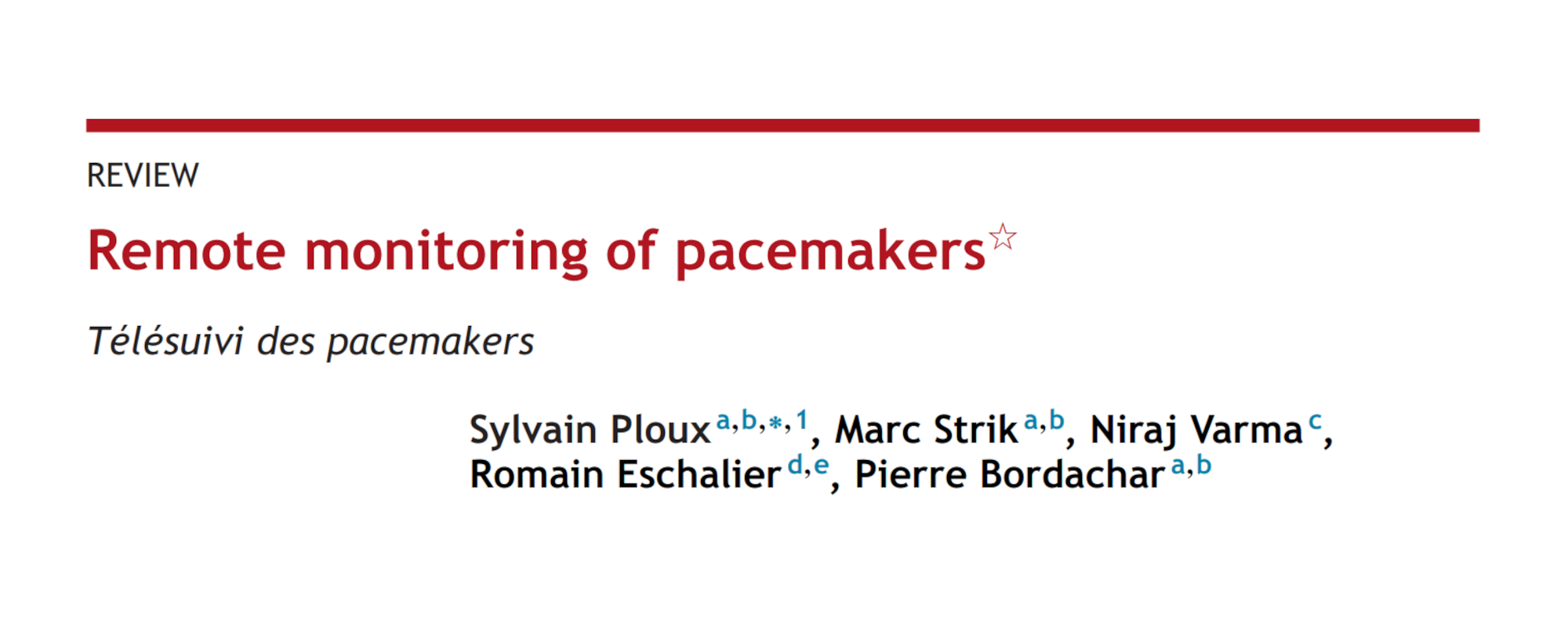Twenty years ago, pacemakers were the first implantable cardiac devices to offer automated remote monitoring. This innovation was particularly well received by patients. However, for many healthcare professionals, this type of care still appears optional, despite benefits comparable to those of ICD remote monitoring, which are reviewed in the article Remote monitoring of pacemakers, published in Archives of Cardiovascular Disease.
Remote monitoring reduces the number of consultations and lightens the healthcare teams’ workload. The ability to detect technical or clinical complications early on increases patient safety and improves the management of safety recalls.
The reduction in hospitalizations and deaths associated with pacemaker remote monitoring is comparable to that observed with ICD remote monitoring in a very large observational cohort. This evidence-based literature review therefore concludes on the necessary recognition and systematic use of pacemaker remote monitoring.
These extensive benefits indicate that Remote Monitoring should not be denied to pacemaker recipients.
The full article is available here (open access).
